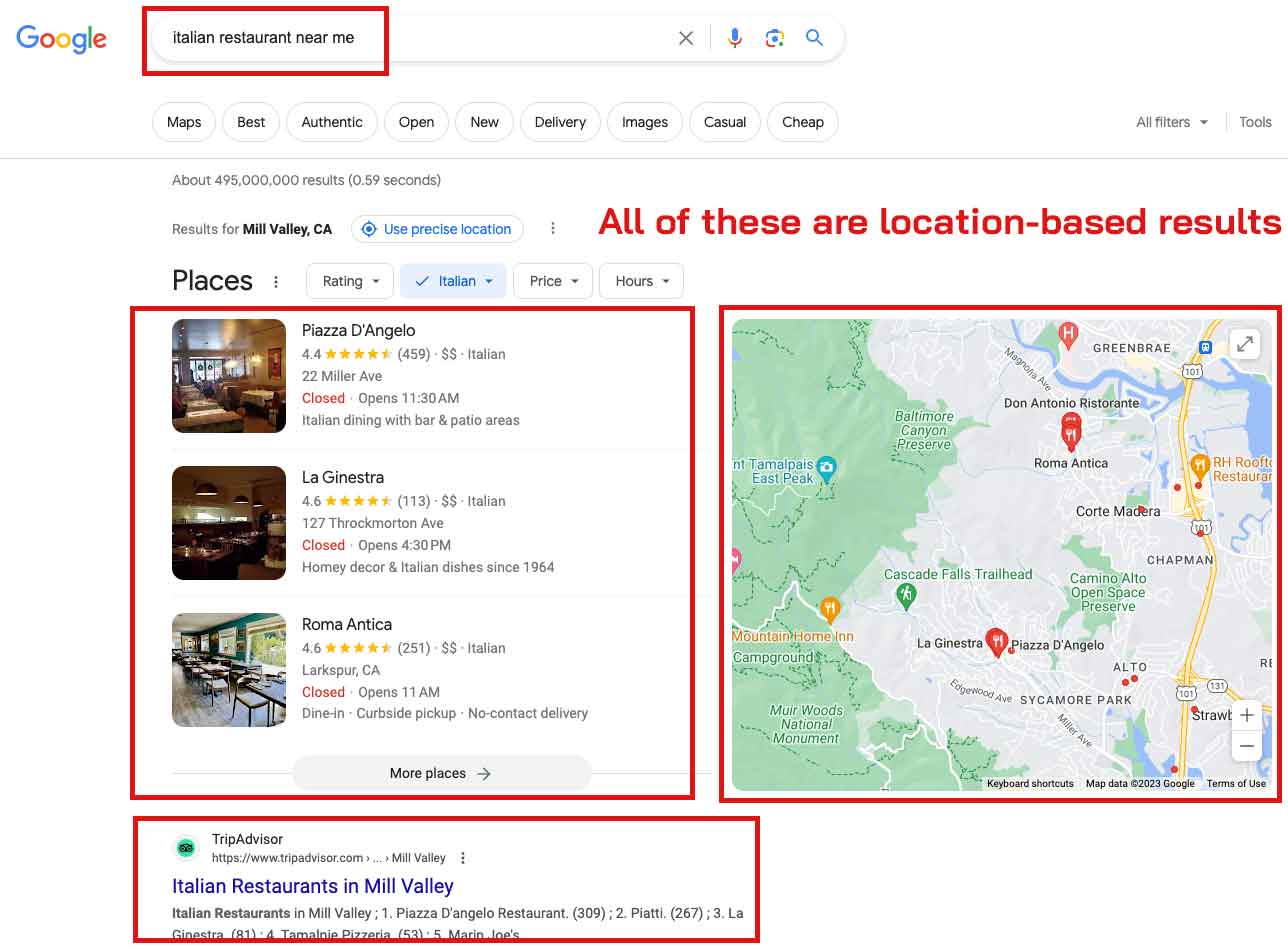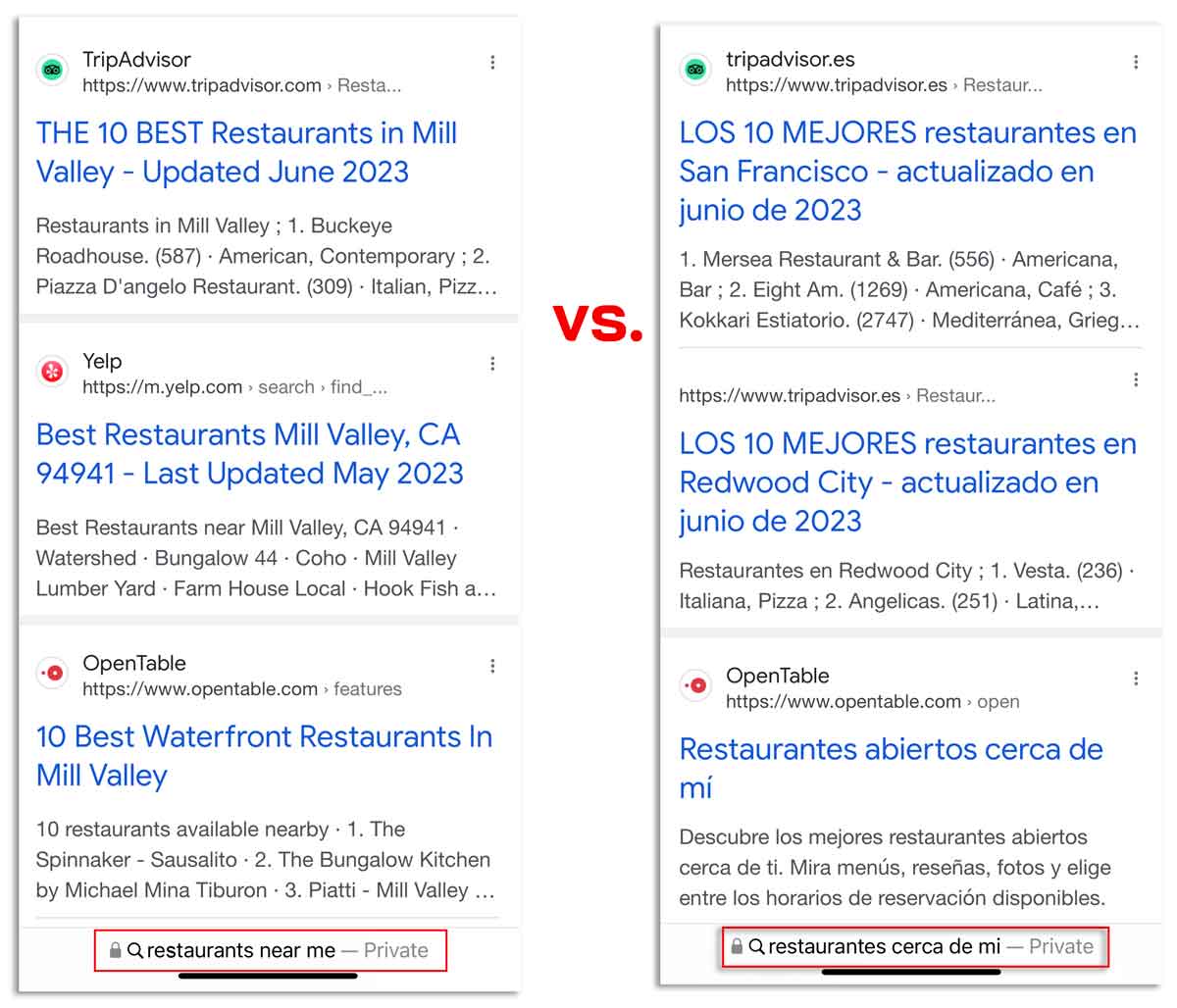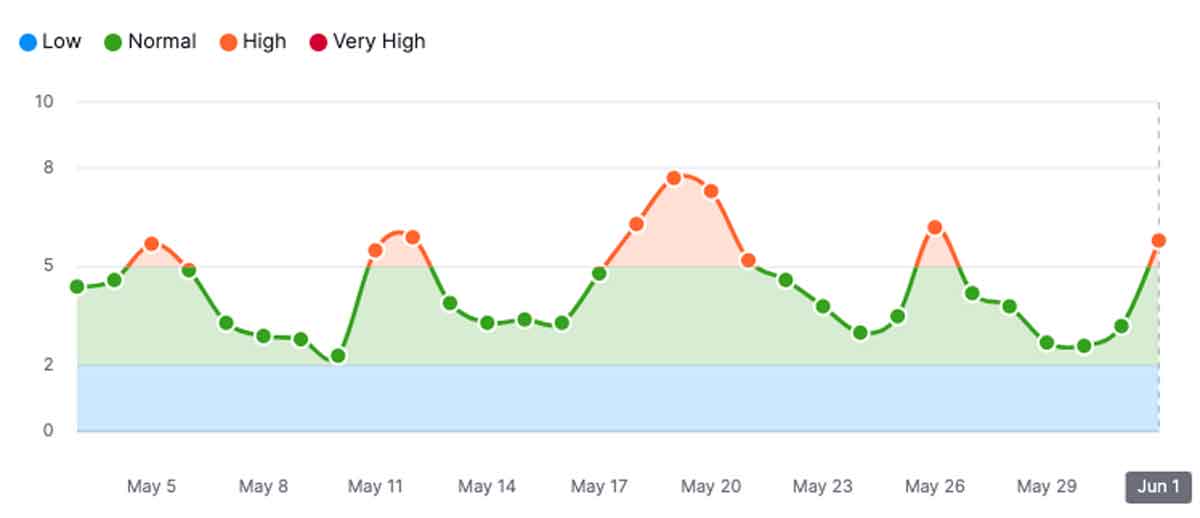Why Search Results Appear Different to Different People and Places
Why do people see different search results than others? There are a number of reasons why search results appear differently to people. Here are five main reasons why search results appear differently.
Overview: Why search results look different
Google and Bing search results can vary based on a number of different factors, including the device the person is using (desktop or mobile), the language they are searching in, browser personalization settings, and the impact of time. These variations occur due to the sophisticated and ever-changing algorithms employed by search engines.
Firstly, the device used influences search results. Mobile and desktop devices may yield different outcomes as search engines consider the varying screen sizes, user behaviors, and preferences associated with each device. Search results are tailored to provide optimal user experiences on specific platforms.
Secondly, language plays a crucial role in search results. Google delivers results based on the language preferences set by users. Consequently, the same query in different languages may produce distinct results to cater to the language-specific web content available.
Moreover, search results can be personalized for individual users. Search engines, like Google, collect user data to offer personalized results aligned with their browsing history, location, interests, and previous search behavior. This personalization aims to enhance user satisfaction by presenting more relevant and tailored information.
Lastly, search results can change over time. As search engines continuously crawl and index new web content, the relevance and popularity of pages evolve. Consequently, search results fluctuate as newer, more relevant pages are introduced or existing ones gain or lose prominence.
Reputation X takes all of these aspects into consideration when designing an online reputation management strategy.
Location, especially for local businesses changes results
A user on a mobile device standing in front of a restaurant will often get different results than someone a few miles away. An example of a strongly location-based search result is shown below. Notice that every result for a search for “Italian restaurant near me” is customized in the image below.
But localized results can be far more subtle as well. For example, a search for Indonesian President Joko Widodo from the United States will yield a somewhat different order of results than if the exact search were performed in Jakarta, Indonesia.
Search engines have servers everywhere. This difference in search results may be very small or more apparent and is largely based on how other people in the area are searching and reacting to specific outcomes.
For example, if a local election is happening, search results will be different when at the geographic epicenter of the election than it will be in a different part of the country, or the world.
Personalized search results
User search behavior is closely tracked. Search engines, like Google and Bing, personalize search results for their users based on the users’ past search activity. By analyzing the user’s browsing history, search engines can deliver more relevant and personalized results. This might include prioritizing websites or content that the person has previously engaged with, by adjusting rankings based on their past search behavior and suggesting related topics that might be of interest.
Language changes search results
The local language spoken in a geographic area can change search result rankings. For example, a search for a prominent company that is based in Hong Kong will often have somewhat different results compared to the same search performed in Singapore. Both countries (territories) speak English, but one speaks more Mandarin Chinese than the other.
The language the search was performed in will change search results as well. For example, a search for “restaurants near me” performed in Spanish (restaurant italiano cerca de mi) from San Francisco will return results in both English and Spanish. It may also result in different search results, as in the example below.
Desktop or mobile device search
Search engines try to return the best results possible. When a user is searching from a mobile device, search engines consider many factors like screen size, touch-specific navigation, and user behavior on mobile platforms, because of this, mobile search results often prioritize mobile-friendly websites, pages with responsive designs, and content that is better suited for mobile consumption.
On the other hand, when searching from a desktop computer, search engines take into account the larger screen size as well as different browsing behaviors. For example, desktop search results may prioritize websites with more information on a screen, multimedia content that benefits from a larger display or faster bandwidth, and pages that offer enhanced interactivity.
Time changes search results
Time can be a big factor that affects the order of search results. The web is dynamic by nature. When you couple this with search engine updates and algorithm changes, time-based variations can occur in search results.
Search engines constantly crawl and index new content on the web because they want to make sure they provide the most relevant and up-to-date information. As new pages are added, and existing ones are modified or removed, search results naturally evolve over time. This is a relatively slow process, but over time results can change significantly.
Algorithm changes over time can affect results. Search engines frequently make small adjustments to their algorithms. These updates can influence rankings and the composition of search results. Most of these changes are quite subtle, but sometimes they can be significant. Combined, they can result in noticeable differences in search results.
It’s also important to note that when search engines like Bing and Google roll out algorithm changes, they may implement them slowly and in different phases across various regions. For example, Googles’s Bard (AI-based search) was released to only a few regions at first. This approach allows for testing and fine-tuning before a global deployment. As a result, users in different parts of the world often experience changes in search results at different times.
Reputation X works hard to build search results that stand the test of time by making sure the results crafted remain relevant over time.
About the author
Kent Campbell is the chief strategist for Reputation X, an award-winning online reputation management agency. He has over 15 years of experience with SEO, Wikipedia editing, review management, and online reputation strategy. Kent has helped celebrities, leaders, executives, and marketing professionals improve the way they are seen online. Kent writes about reputation, SEO, Wikipedia, and PR-related topics.
–
Tags: Business Reputation Repair, Online Reputation Repair, Personal Reputation, Reputation Management.



